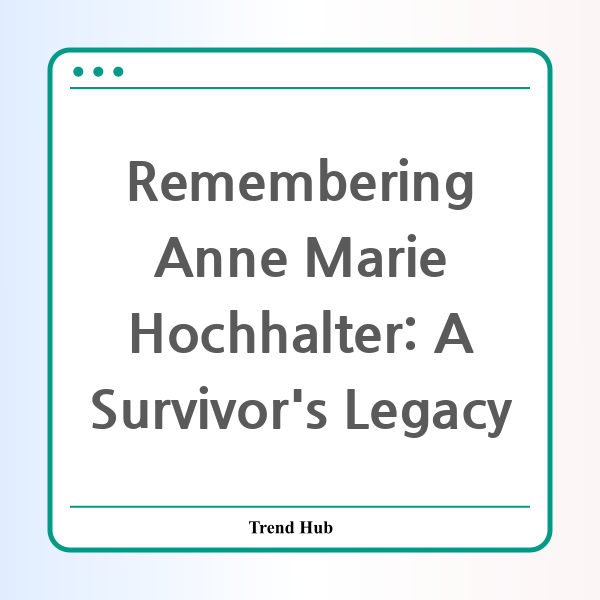* This website participates in the Amazon Affiliate Program and earns from qualifying purchases.

How do we honor the legacies of those who have survived unimaginable trauma? The story of Anne Marie Hochhalter, a survivor of the Columbine shooting, offers not only a glimpse into resilience but also a profound message about forgiveness and healing.
Anne Marie Hochhalter was just 17 years old when her life changed forever on April 20, 1999, during the tragic events at Columbine High School in Littleton, Colorado. Shot twice, she was left paralyzed from the waist down and faced a long, arduous journey of recovery. The trauma was not just physical; it echoed throughout her life, influencing her relationships and her outlook on the world. But Hochhalter’s story is more than one of pain; it is also a narrative of strength and compassion.
After the shooting, Hochhalter became a vocal advocate for change, using her voice to raise awareness about gun violence and its long-lasting effects. She didn’t shy away from discussing her struggles with paraplegia and the complications that arose from it—issues like pressure sores and infections became part of her reality. Despite these challenges, Hochhalter remained a symbol of hope and fortitude.
In 2016, Hochhalter made headlines when she publicly forgave the mother of one of the shooters, expressing wisdom that resonated with many: "Bitterness is like swallowing a poison pill and expecting the other person to die". Through her journey of healing, she found the courage to reach out, not just to those who had inflicted pain, but also to others who had suffered similar losses. This compassion and understanding allowed her to bond with the family of another Columbine victim, Lauren Townsend, creating a healing network that transcended their shared trauma.
Hochhalter's legacy is further illuminated by her ability to focus on the positive aspects of life, even in the face of adversity. During the 25th anniversary of the Columbine tragedy, she attended a vigil and reflected on the happy memories of her childhood rather than the pain of that fateful day. Her story reminds us that the ways we choose to remember those we’ve lost are just as important as the memories themselves.
Over the years, Hochhalter’s advocacy extended beyond her personal struggles. She became a voice for many, inspiring those with disabilities and helping to raise awareness for mental health issues stemming from violent tragedies. Her outlook was one of hope, emphasizing the importance of connection and community support.
Tragically, Hochhalter passed away at 43, leaving behind a legacy of resilience and compassion. Those close to her noted that even in her suffering, she was tireless in her efforts to help others, showcasing the true essence of humanity. Her brother Nathan described her as a “good human being” who was unyielding in her desire to assist those around her, whether they be people with disabilities or her own family.
The story of Anne Marie Hochhalter serves as a beacon of hope, reminding us that even in the darkest of times, the human spirit can prevail. Her journey from a victim to a survivor, and finally to a mentor, embodies the essence of triumph over adversity. As we remember her, let us carry forward her message of forgiveness, healing, and the power of community.
In conclusion, Hochhalter’s life challenges us to reflect on our own experiences and how we can turn tragedy into a springboard for positive change. Through her legacy, we learn that while we cannot change the past, we have the power to shape our future, turning wounds into wisdom and pain into purpose.
* This website participates in the Amazon Affiliate Program and earns from qualifying purchases.